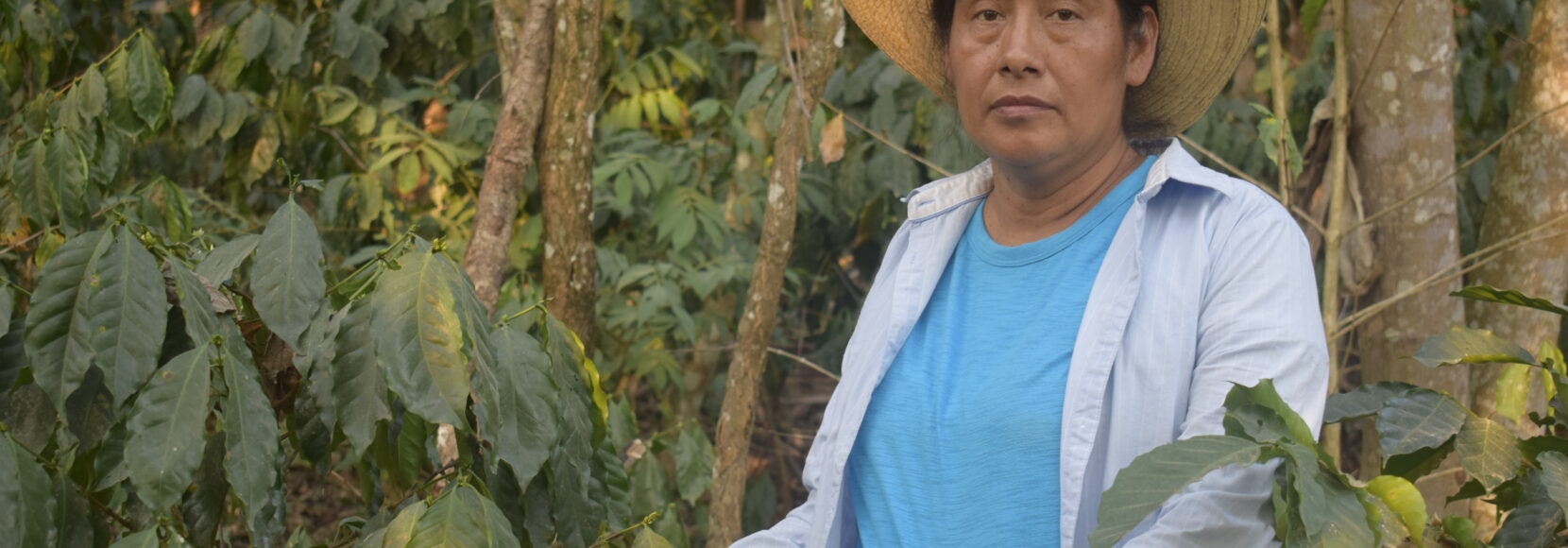
4 Reasons Women and Children Experience Food Insecurity Differently
Discover the four key reasons why hunger disproportionately affects women and children, and learn how TechnoServe is empowering women to achieve food security and break the cycle of poverty.

Food security — having the adequate availability, access, and means to consume enough safe, nutritious food — is critical for a healthy, productive life. For millions of people living in poverty worldwide, hunger and malnutrition pose serious threats to their health, wellbeing, and livelihoods every day.
More than 2.5 billion people worldwide live in moderate or severe food insecurity, and roughly 800 million people are undernourished. Out of that number, more than 350 million children face hunger every day. And yet, while farmers make up many of the almost 700 million people who don’t get enough food worldwide, it is sometimes forgotten that women make up more than 60% of that agricultural workforce and that more than 60% of the world’s hungriest people are women and girls.
Here are four reasons why women and girls are so much more affected by hunger.
1. Harmful Gender Norms and Beliefs
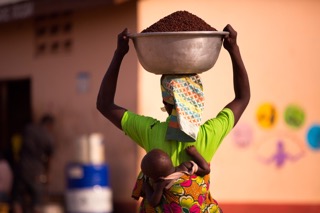
If food is scarce, it’s been reported that many women will reduce the amount of food they eat — or skip meals entirely — to make sure that their partners and children don’t go hungry. Women farmers and entrepreneurs also face disproportionate obstacles to entering profitable sectors and increasing their earnings within the sectors in which they do work, affecting their ability to purchase adequate food. These include time constraints due to family responsibilities, limited access to financial services, and a lack of autonomy and control over their income and assets. Societal gender norms and beliefs often negatively influence attitudes toward women’s entrepreneurship and financial independence, making it more challenging to address these obstacles.
2. Conflict
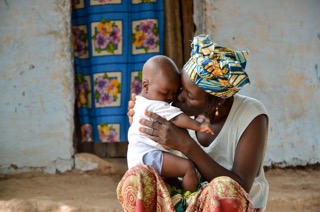
Hunger and conflict are wholly intertwined. According to the Council on Foreign Relations’ Global Conflict Tracker, there are currently 27 ongoing conflicts worldwide. These conflicts are often the main cause of hunger in many of the world’s food crises. Conflict can displace farmers and destroy agricultural assets and food stocks, and it can disrupt markets and consequently increase prices, which damages livelihoods.
In this vicious circle, conflict and lack of food break down the very fabric of society, often leaving women as the head of their households, either temporarily while living in displacement or while their husbands and elder sons fight, or permanently if their partners are killed or disappear.
3. Lack of Women’s Rights

While women around the world are farmers, business owners, and entrepreneurs, they often don’t receive the rights and resources that men do. Women are responsible for 60-80% of food production in low- and middle-income countries and half of the world’s food production. And yet, they own less than 10% of the land.
Women also face greater challenges in accessing financial accounts and services than men. Apart from North America, the number of women worldwide with access to a financial account is lower than that of men. And in Sub-Saharan Africa and the Middle East and North Africa region, less than 40% of women have a financial account.
“When I want to grow my business, I go to the bank to ask for a facility,” says Justina Opit, an entrepreneur supported by TechnoServe. “They’re asking me for collateral. But I don’t have it because I don’t own land. It wasn’t only me that was like this – most women were like this.”
4. Poor Nutrition Before, During, and After Pregnancy
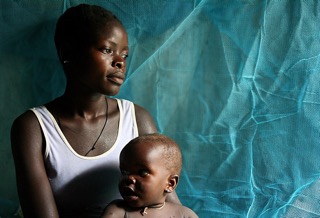
When women are menstruating, pregnant, or lactating, they have greater micronutrient requirements, and adequate protein and energy intake is even more important. During these periods, women also need to consume more calories to support the development of their babies and the production of breast milk. Poor nutrition impacts not only the health of women, but also the health of their children. In 2019, nearly 30% of women of reproductive age had anemia – a diet-related iron deficiency that can cause organ damage if left untreated. In addition, the children of malnourished women are more likely to have poorer mental and physical development, higher rates of disease and infection, and are more likely to die in childhood.
How Women Are Being Empowered So They Are Food Secure
Since 2019, TechnoServe has worked to address economic and gender barriers for 17,000 smallholder farmers in Andhra Pradesh, India – including women like N. Mangamma – through a program with the Walmart Foundation.
The project aims to improve smallholder farmer incomes by increasing the volume of farmers’ produce, connecting farmers to buyers, and launching new initiatives like kitchen gardens. These gardens – small plots of land near people’s houses – are particularly important for women, enabling them to grow their own produce and maintain an independent source of income and food security.
“I can depend on my kitchen garden to provide vegetables for the family,” says Mangamma. “I can also save between $10.70 and $16.05 every month because I don’t need to purchase these vegetables from the market anymore.”
Feeling more secure about her family’s nutritional health, Mangamma now also sees her garden as a source of cash.
How Coffee Farming Helped a Woman Escape Hunger
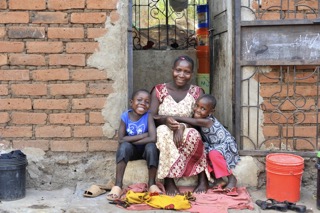
Other women like Athanasie Musabyimana know what it is to worry about how they will feed their family. Forced to flee to a refugee camp during the 1994 genocide in Rwanda, she once had so little food, she thought that she – and the daughter she was breastfeeding at the time – might not survive.
But they did survive, and returned to Rwanda afterward – only for Athanasie to face daily challenges that affect so many women living in poverty. When her husband died shortly after their return, Athanasie found herself struggling to earn enough money to support three children and her parents all alone.
She decided to turn to coffee farming for a better income. Working with TechnoServe, she discovered that changes to the way she grew the coffee could improve its quality and yields – and increase the income she earned from her crop.
Soon, Athanasie’s coffee became good enough to sell to buyers like Starbucks. And in a few years, she had tripled her income, expanded her house, and sent all of her children to school.
Athanasie’s concerns about feeding her family are now a thing of the past. “Now with the life I am living – I am not worried,” she says.
What Happens When Women are Empowered
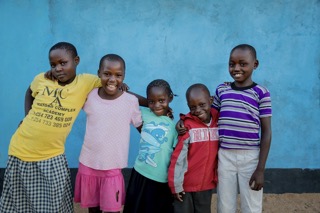
When women gain economic empowerment, the effects spread across families and communities. Research indicates that women invest more of their income on family needs such as food, medical care, and schooling, improving opportunities for the next generation. Women in leadership positions such as entrepreneurs, farmer trainers, or cooperative leaders, also help break down harmful gender-based norms and stereotypes in their communities, while serving as important role models for girls and other women.
TechnoServe works creatively and proactively to help women around the world gain equal access to the knowledge, jobs, and finance that enhance both their incomes and their opportunities for the future.
Empowering women is crucial in addressing hunger and food insecurity, as it not only improves their own lives but also benefits their families and communities. By understanding the unique challenges women and children face, and supporting initiatives like TechnoServe that promote gender equality and economic opportunity, we can work together to break the cycle of poverty and create a world where everyone can enjoy food security and a better future.
Join us as we empower women and their families around the world.
RELATED BLOG POSTS:




